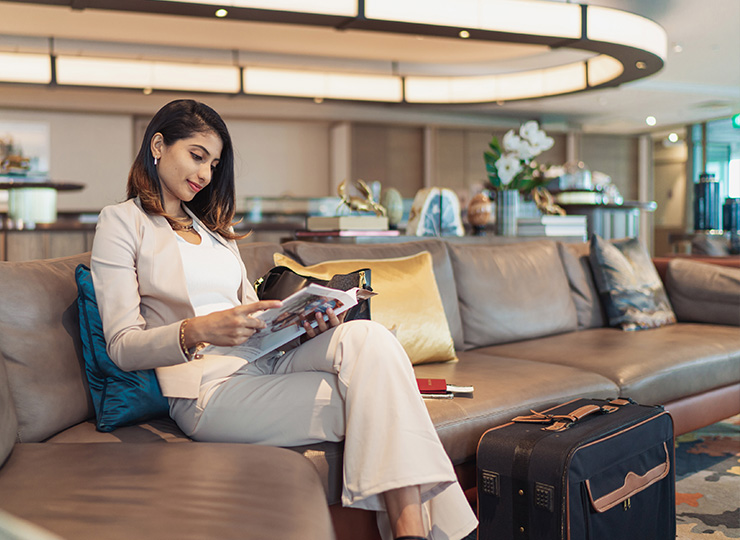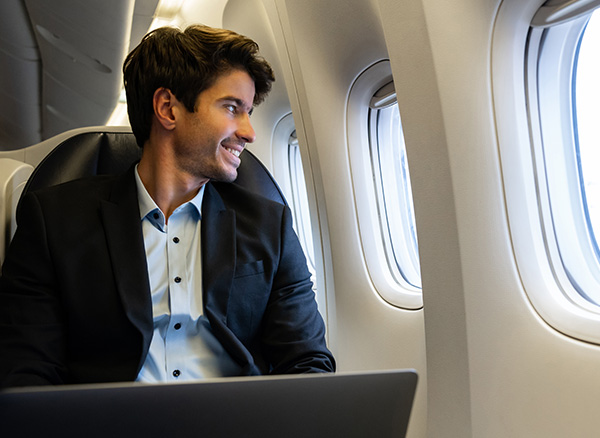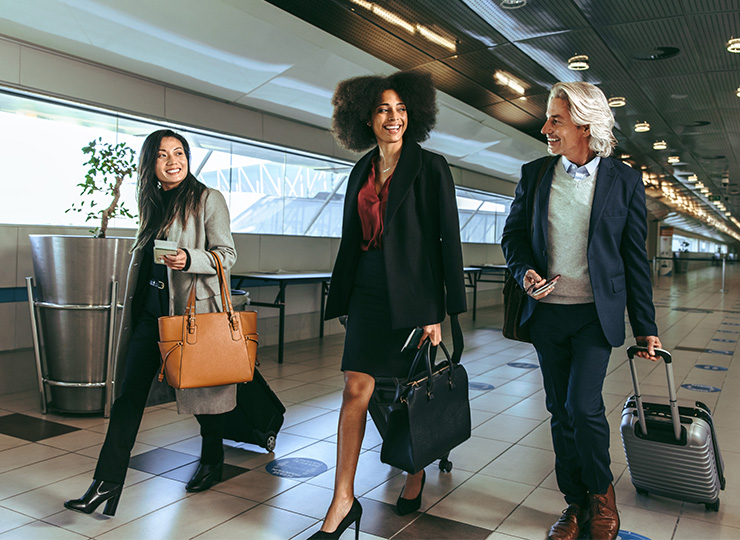

Enhancing the wellbeing of frequent business travellers through sustainable practices
When it comes to safeguarding the wellbeing of business travellers, travel policies often concentrate on conventional areas of risk management such as in-country safety, pandemic health concerns, and civil disturbance. However, they may overlook the social aspect of the organisation’s sustainability framework. Sustainability encompasses not only the health of the planet but also the wellbeing of individuals.
While a portion of the workforce may travel for business, it is the frequent business travellers who require a greater level of care. Are they able to maintain a healthy diet, get adequate sleep, and continue their exercise regime during their travels? These considerations may not be part of the organisation’s travel policies, but they are crucial to ensuring the overall wellbeing of frequent business travellers.
Many organisations already prioritise employee wellness in the workplace and company culture, but it is equally important to address the wellbeing of those who frequently travel. This blog offers tips to organisations on how to improve the wellbeing of their frequent business travellers, as part of their broader sustainability goals.
Health and wellbeing impacts
Frequent business travel can take a toll on both the physical and mental health of travellers. Being away from home and loved ones, disruptions to daily routines, and lack of familiar comforts can lead to unhealthy habits, poor sleep patterns, feelings of loneliness, and increased stress levels.
Businesses and their travellers understand business travel is critical for organisational growth, building important partnerships, maintaining customer relationships, and boosting productivity. Focusing on more purposeful travel and ensuring those that must travel frequently are supported by the right travel programme and policy, to accommodate good health and wellbeing practices, will not only enhance the travel experience but also promote a positive and productive outcome.
Travel behaviour
When creating or evaluating a travel policy, organisations need to have a comprehensive understanding of their frequent travellers. This includes identifying their business purpose, demographic, and specific travel trends and behaviours. By analysing frequent travellers’ booking patterns, organisations can gain valuable insights into areas of the travel policy that require attention.
Organisations should also encourage their frequent travellers to share feedback on the current travel policy to identify areas for improvement. This collaborative approach can help ensure that the travel policy aligns with the needs and expectations of frequent travellers, resulting in a more effective and efficient travel programme.
To make informed decisions around traveller wellbeing, Travel Managers may review the following:
- What time of day are they travelling and how often?
- If travelling internationally, how many time zones do they cross?
- What fare class (economy, premium, business, first) are they booking versus flight duration?
- How many days are they away from home?
- Are they travelling on weekends to accommodate work commitments?
Review your preferred travel suppliers
The ability to support business travel with health and wellbeing services that your frequent travellers want and need will be important for traveller experience, productivity, employee satisfaction, and retention.
Some areas for consideration:
- Are there apartment hotels on the travel programme to allow travellers to cook fresh meals?
- Are hotels centrally located, allowing travellers to walk and enjoy fresh air between appointments?
- Do your hotel suppliers have an onsite gym or partner with neighbouring facilities?
- Is your business aligned with hotels/airlines that offer wellness programmes?
- Is your business aligned with hotels/car rental/airlines that support sustainable initiatives for the environmentally conscious traveller and business?
For frequent travellers, the hours in the air quickly add up over the year. While sedentary in a seat with limited options for movement or choice of food, keeping healthy while flying can be a challenge. In recent years some airlines have stepped up to the plate to provide in-flight wellness programmes including meditation apps, yoga videos designed for in-flight stretching, improved blankets and bedding, and healthier meals.
There is also the consideration of rail, especially throughout Europe where many airlines are canceling services that are less than 2.5 hours in duration. Not only is the use of rail a more sustainable choice, but from a wellness perspective, travellers also have more time to rest, move about, and work (if they choose) as they are not spending time in security, customs, and boarding lines.
Wellness solutions have also moved into hotel rooms, and are no longer solely about beauty treatments. Health and wellbeing amenities can be personalised and booked based on a traveller’s preference. Some hotels now offer yoga mats with on-demand yoga videos, meditation apps to promote mindful breathing, virtual fitness classes, cooking demonstrations, and even telemedicine consultations.
Flexible travel policies
For the benefit of frequent business travellers, providing flexibility within travel policies to address travellers’ specific needs is crucial for a successful travel experience. This can be achieved through individual or departmental-level approval processes.
Offering bleisure travel options empowers travellers to decide if they want to extend their stay for a break before returning to work. Providing the ability to adjust flight plans for longer or earlier departures can enhance this experience.
Including premium or business class options for domestic and international travel, as well as lounge access during lengthy transit times or potential flight cancellations or delays, can help travellers to arrive well-rested and productive.
Key takeaways to support the wellbeing of frequent business travellers
By taking these steps, businesses can help promote a healthier and happier lifestyle for frequent business travellers.
- Review your travel programme and policy to ensure it accommodates good health and wellbeing practices.
- Use data to understand who your frequent travellers are and their travel behaviours to make informed improvements to travel programmes and policies.
- Ensure your hotel/air/car suppliers support your organisation’s overall health, wellness, and sustainability goals.
- Provide opportunities for employees to disconnect from work and engage in relaxation activities, such as yoga or the inclusion of bleisure travel to allow downtime before or after a business trip.
- Introduce rail (where available) to reduce transit time and instead create more time for rest or productivity during travel.
- Offer support and resources for managing stress and maintaining mental wellbeing while travelling.
- Introduce flexible travel policies that meet the unique needs of frequent travellers.
Take steps to enhance the wellbeing of your frequent travellers.
Talk to our expert team today.




